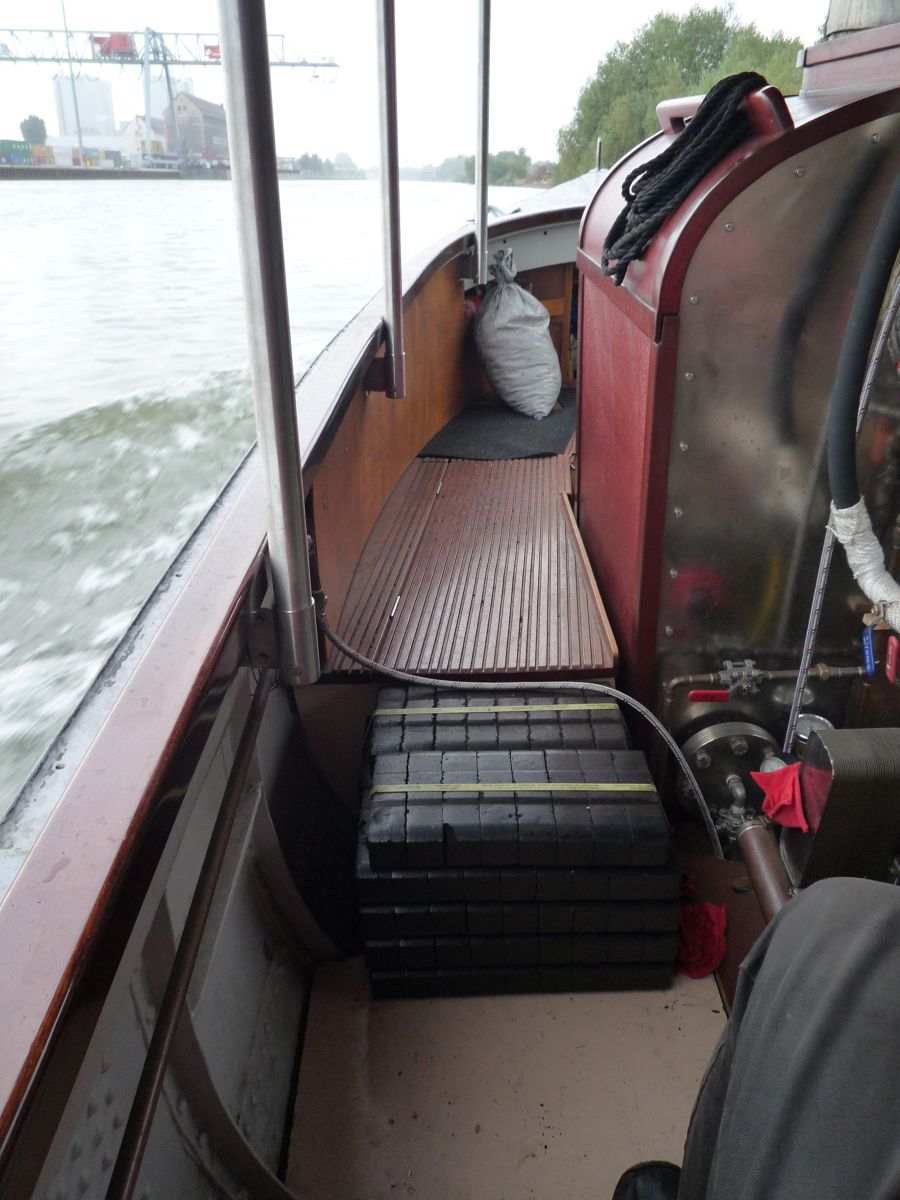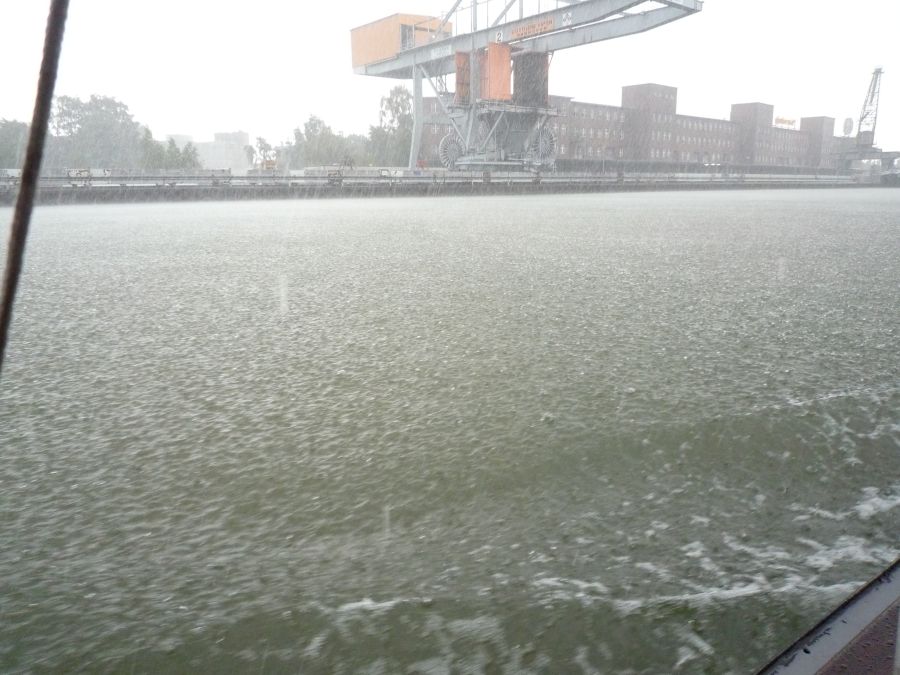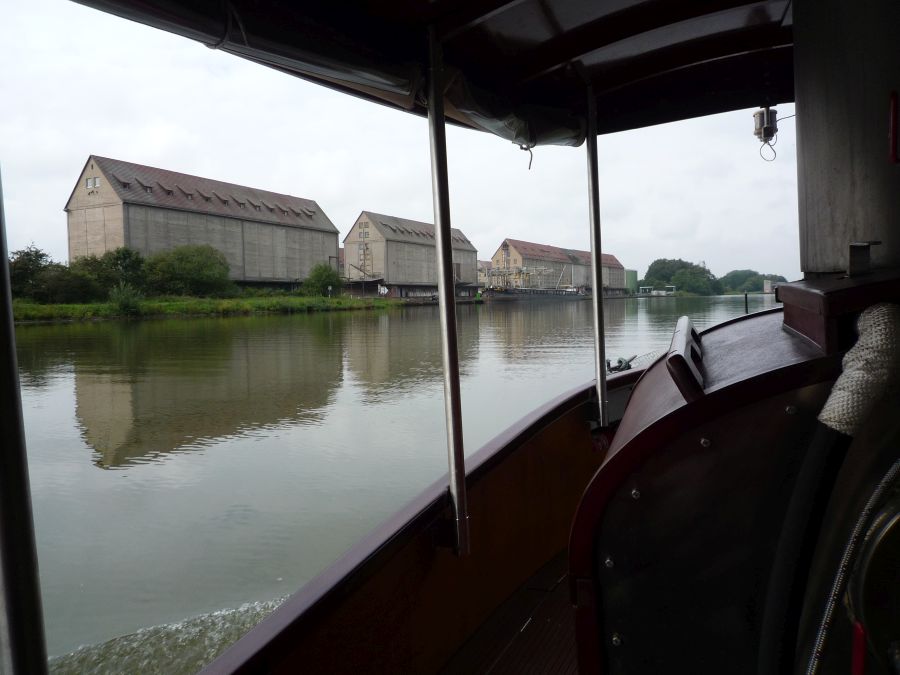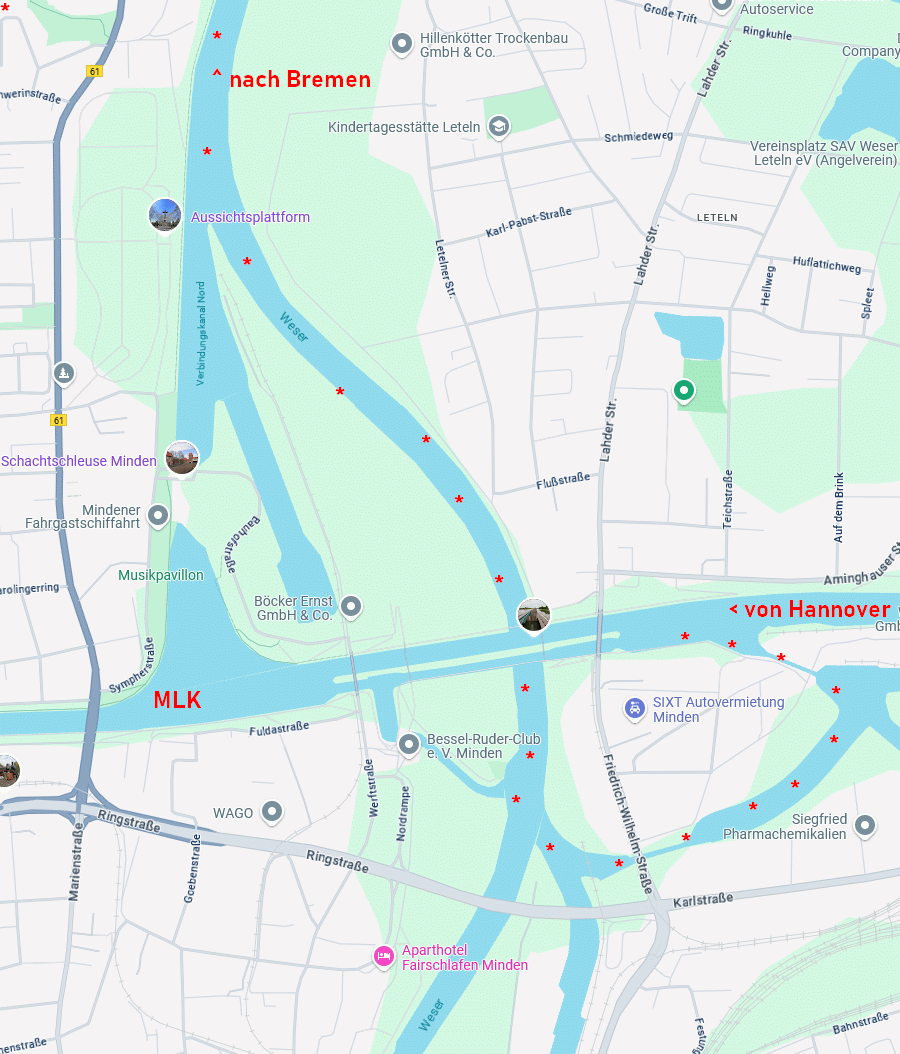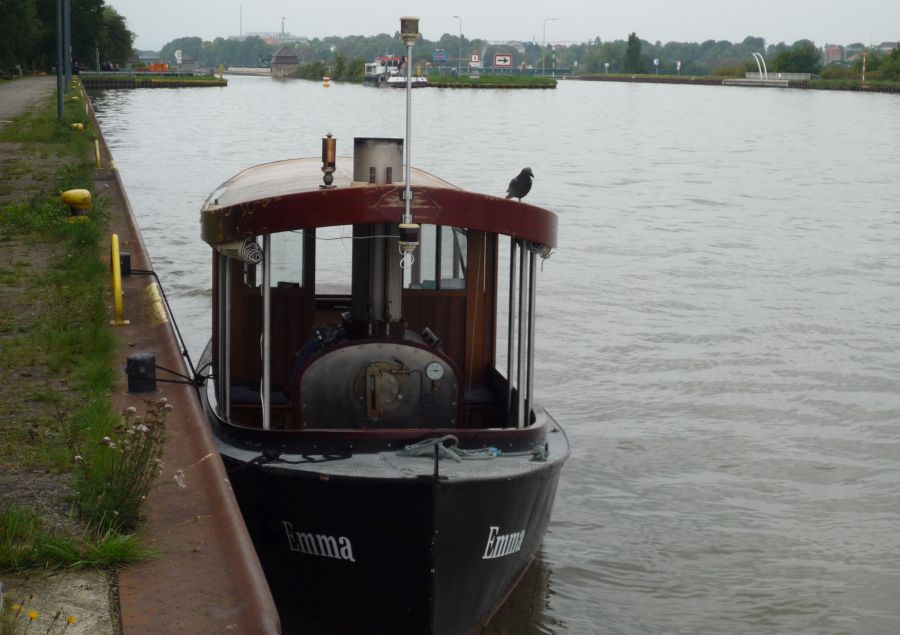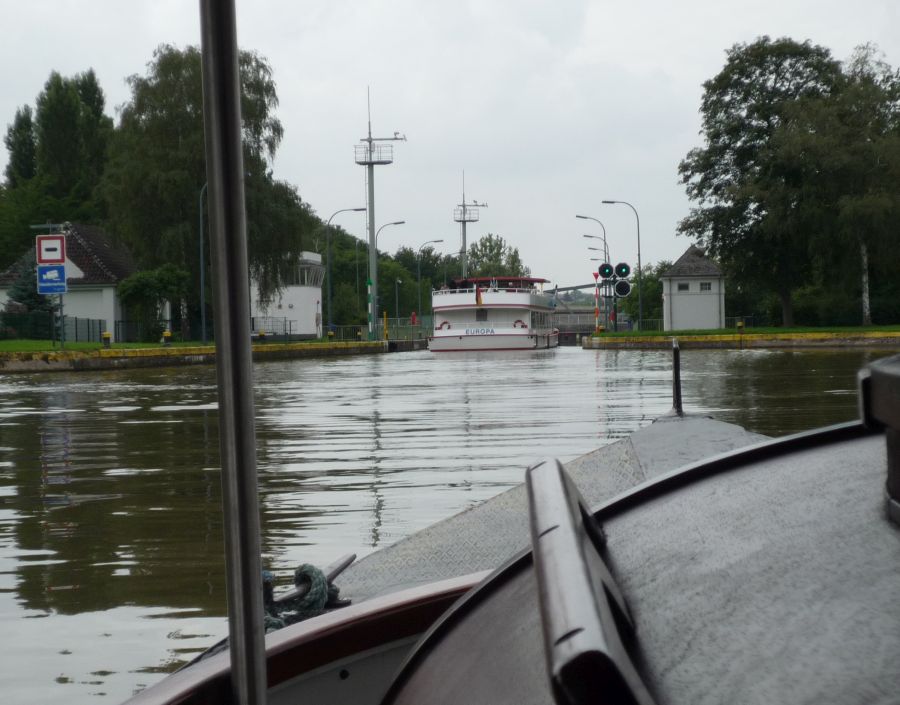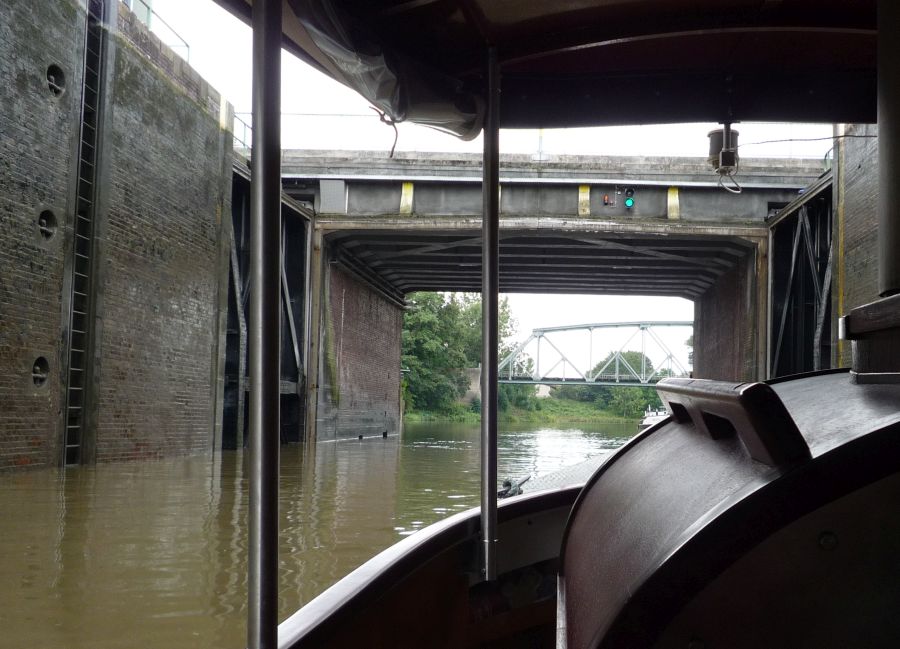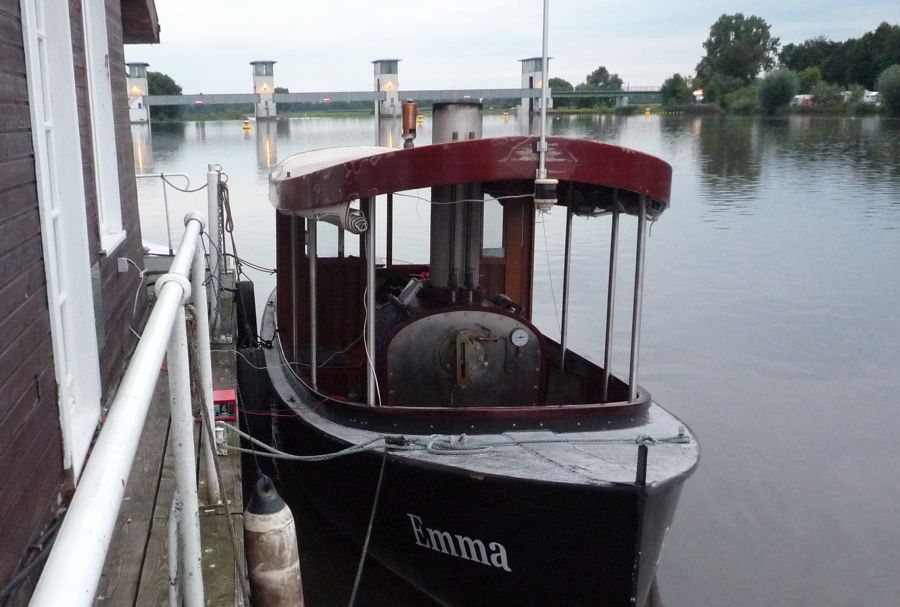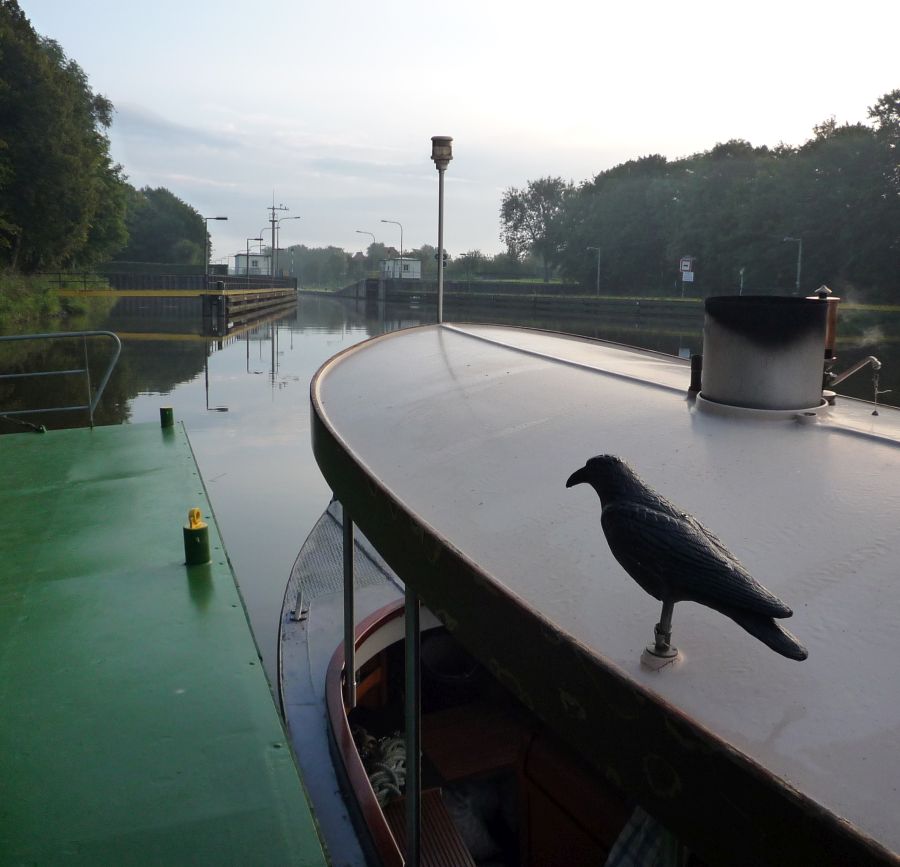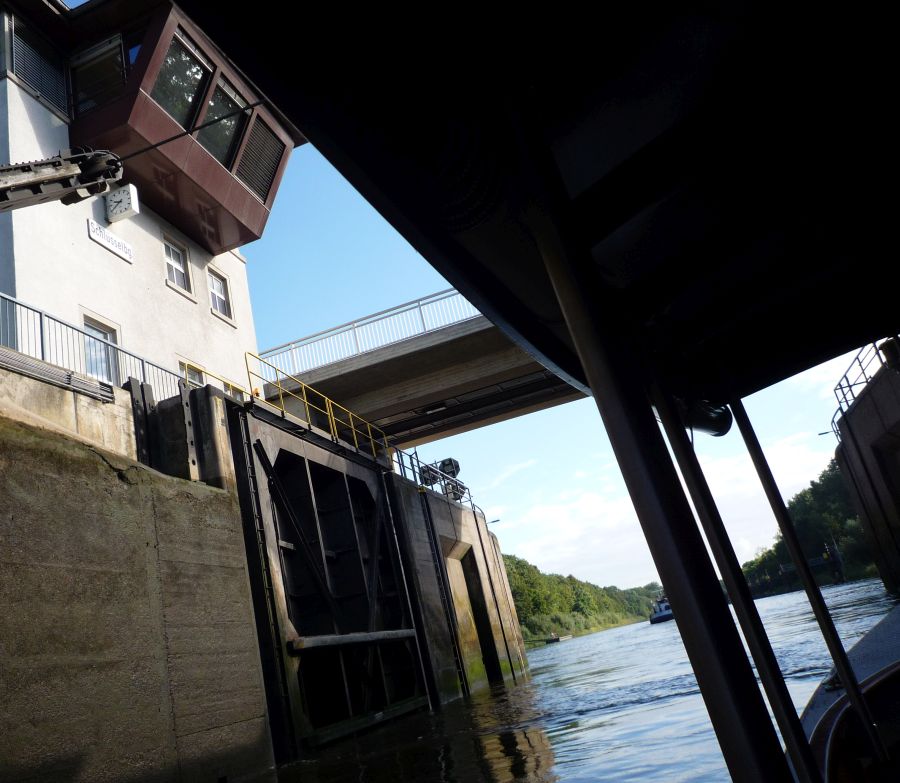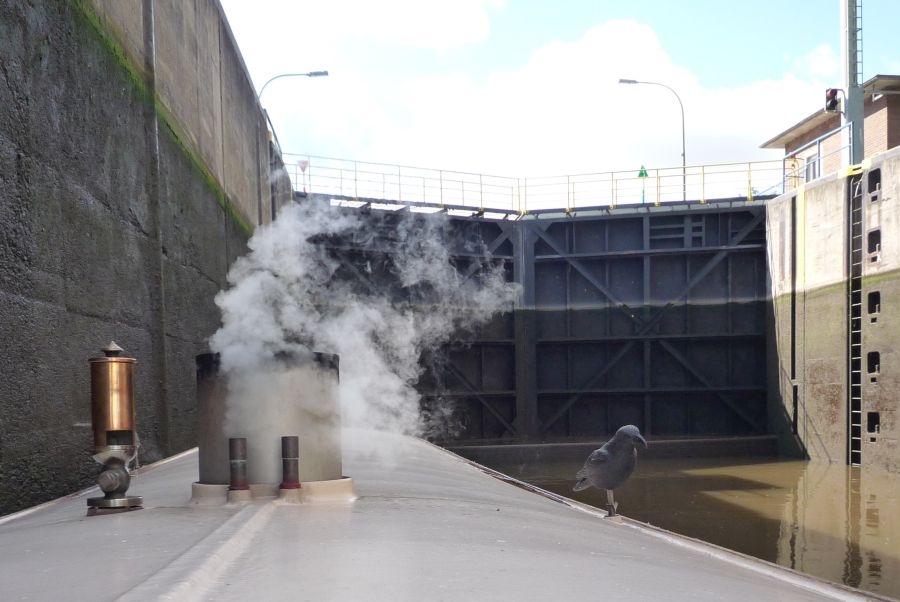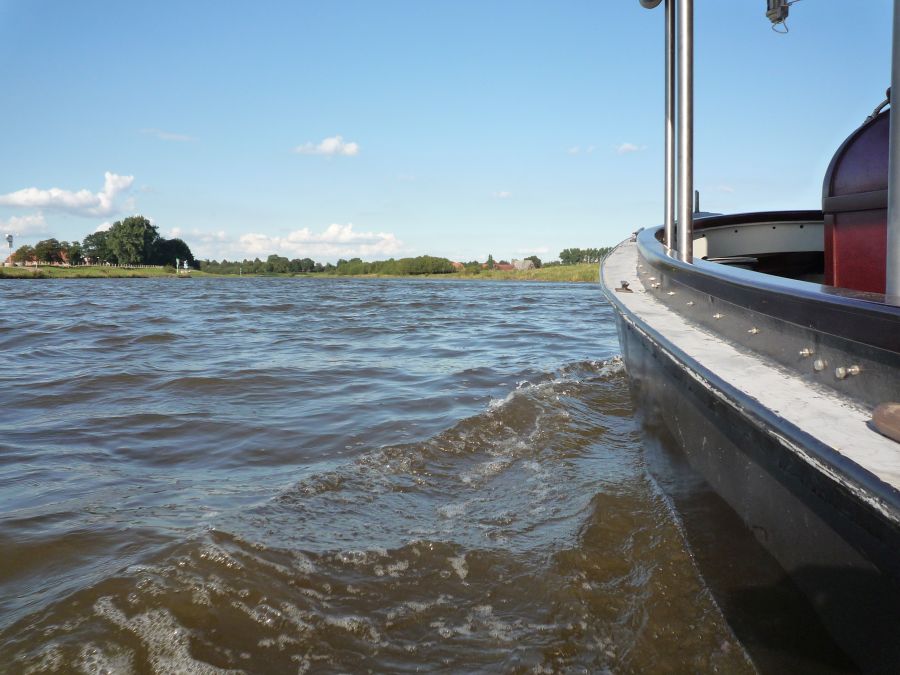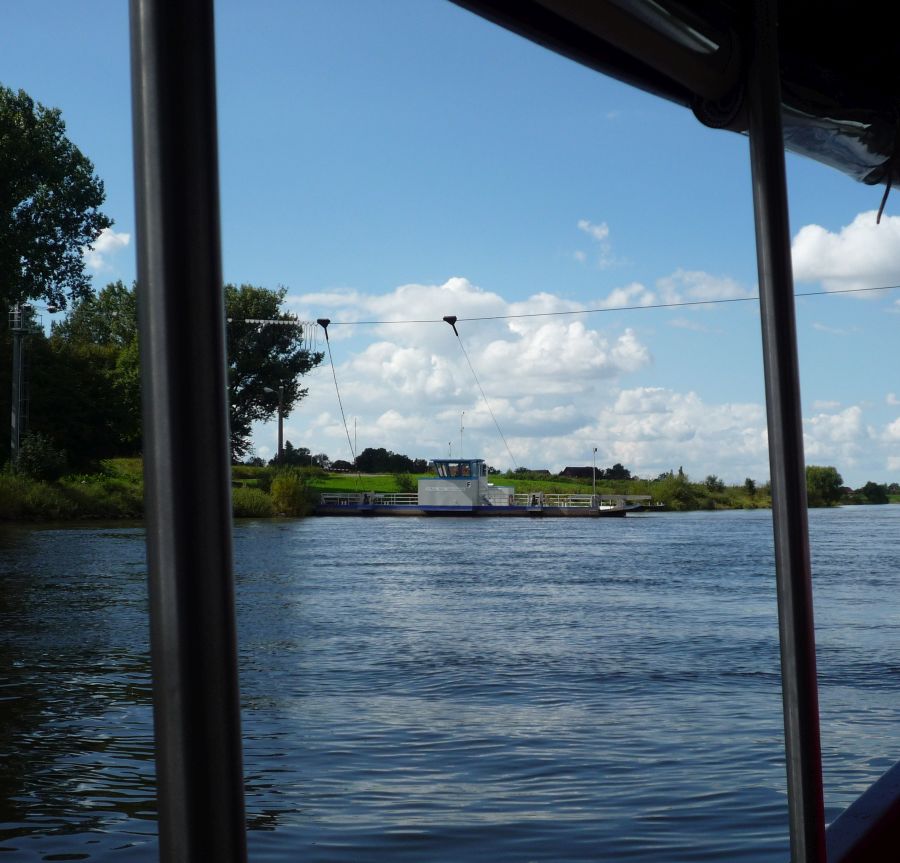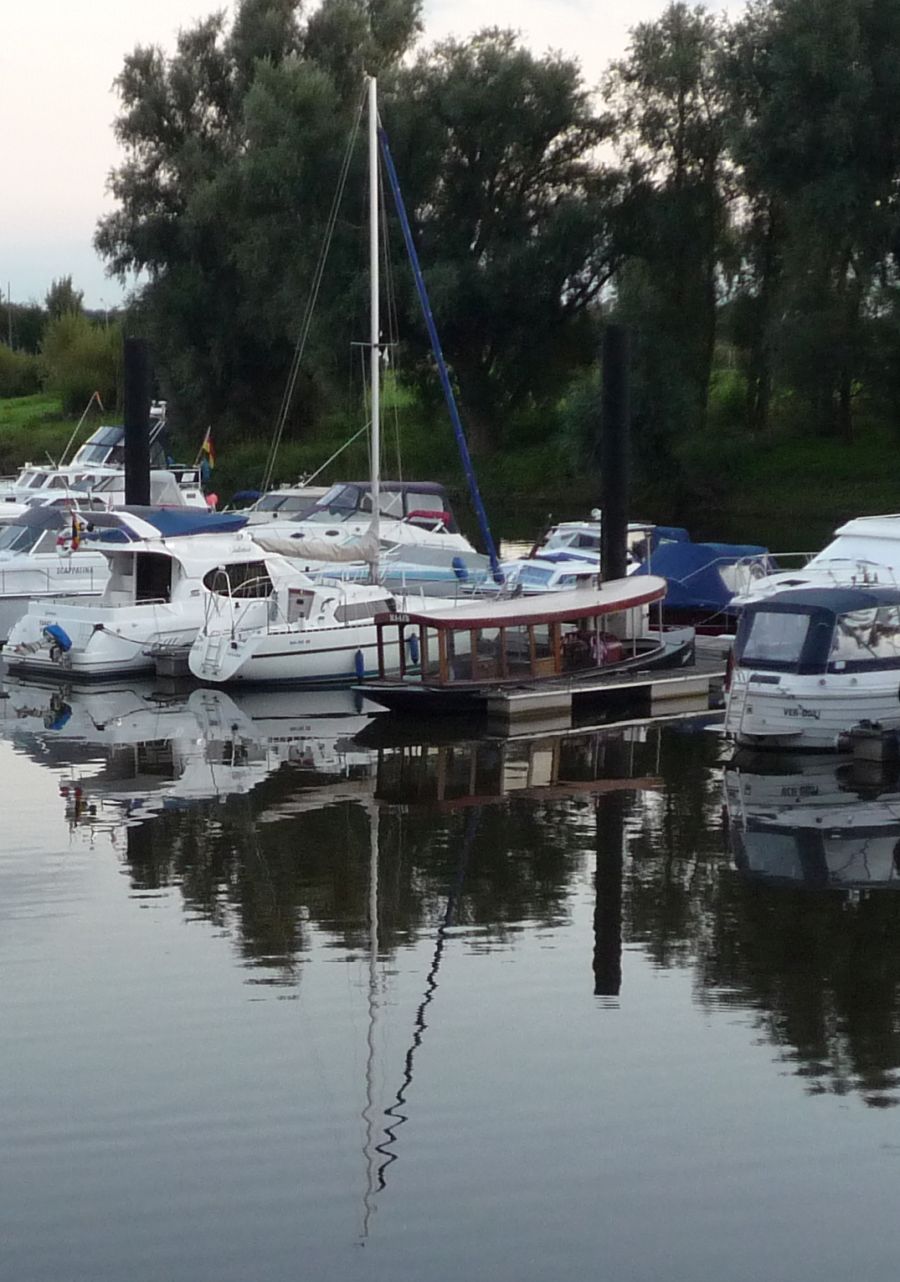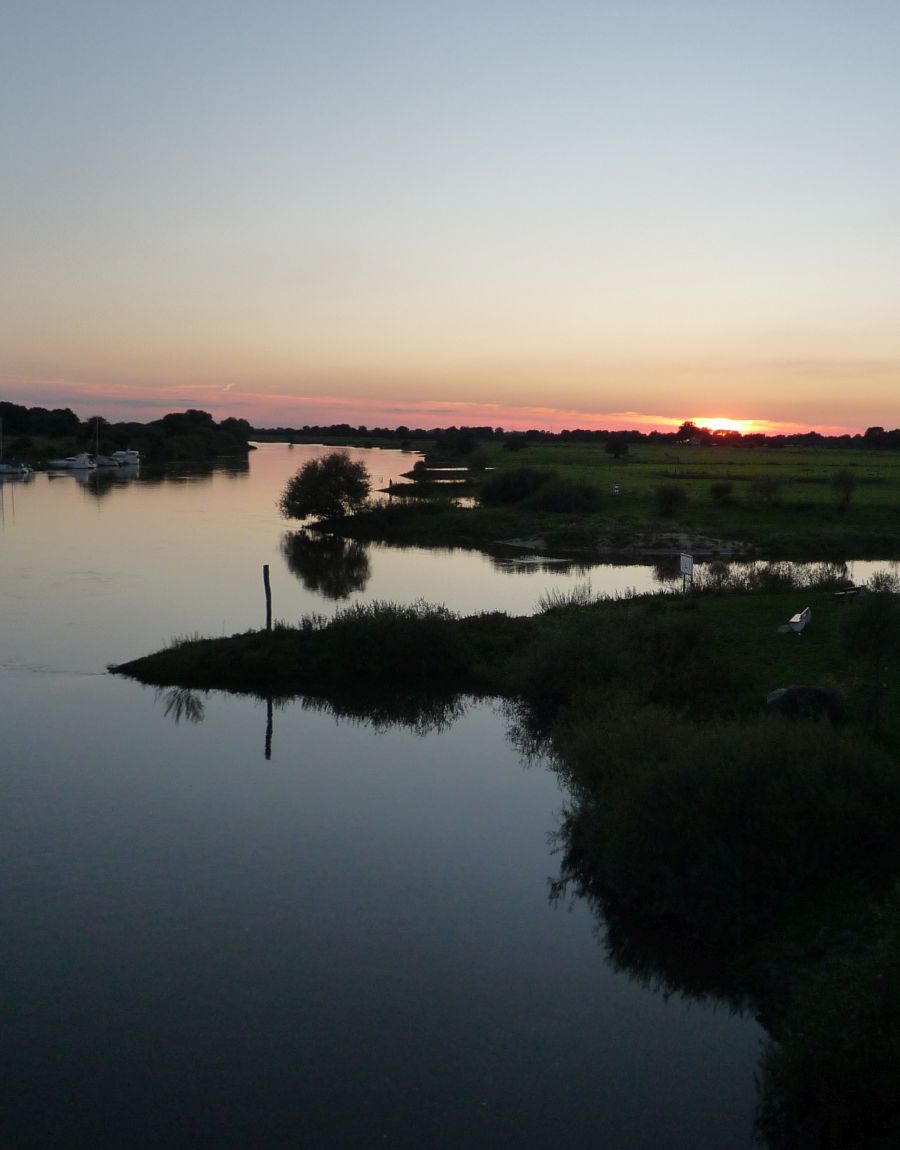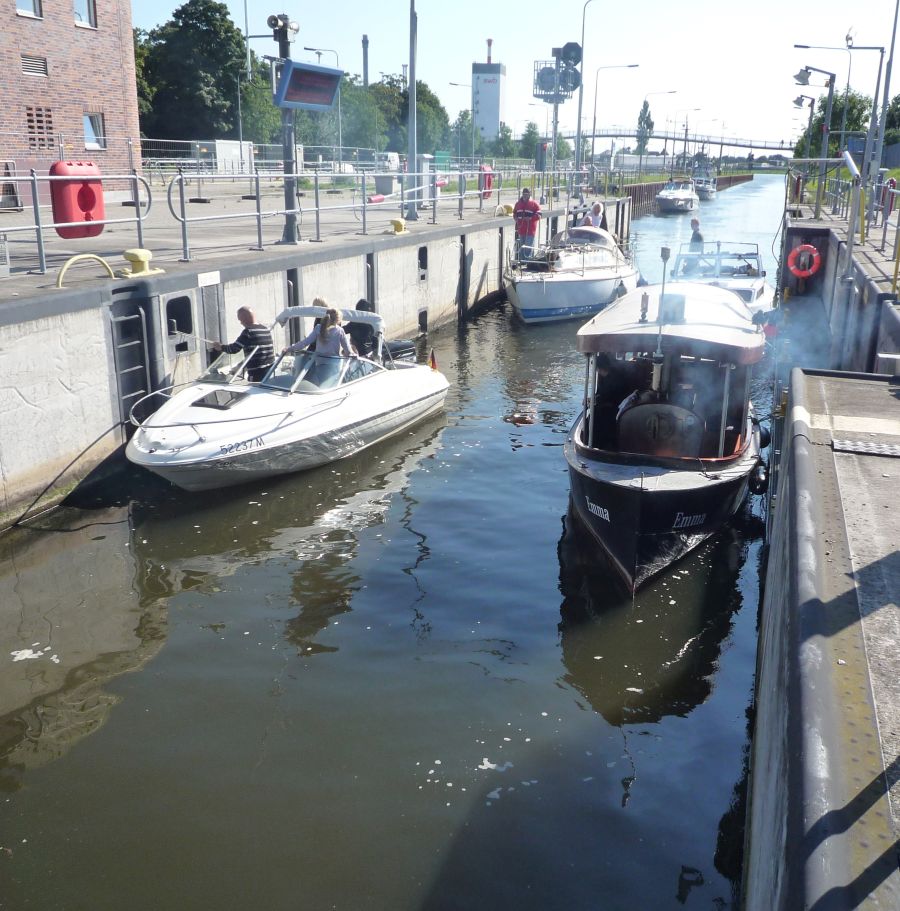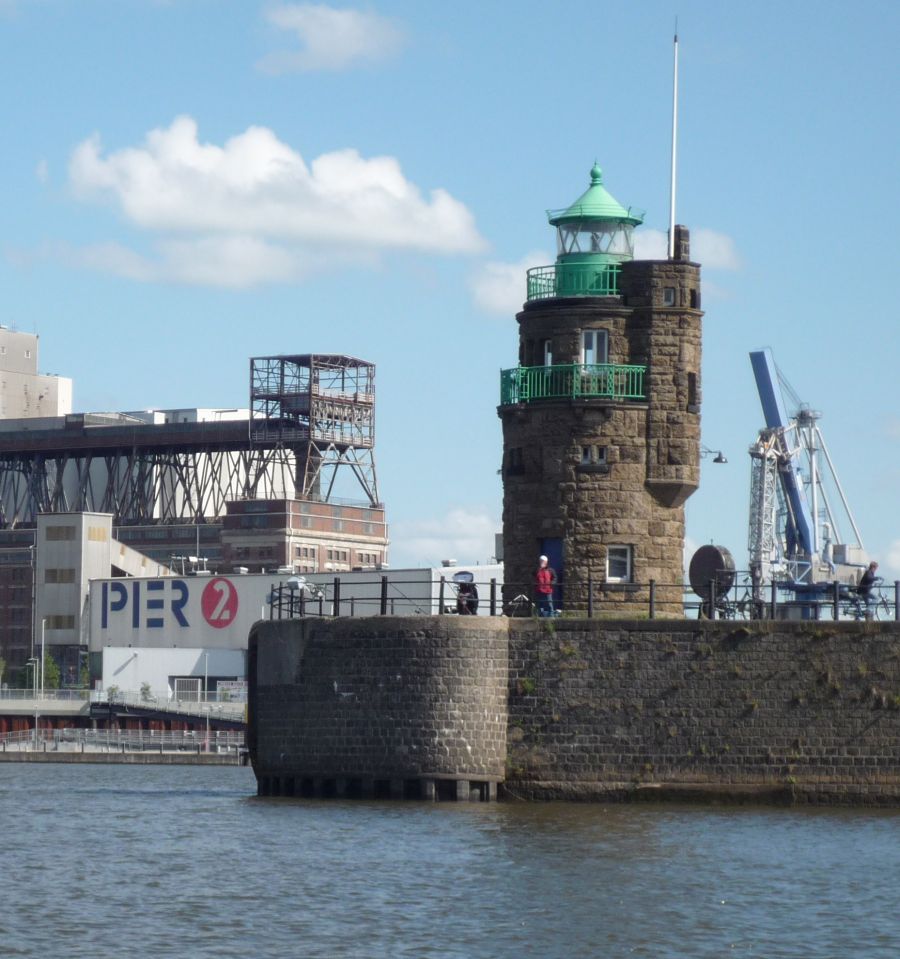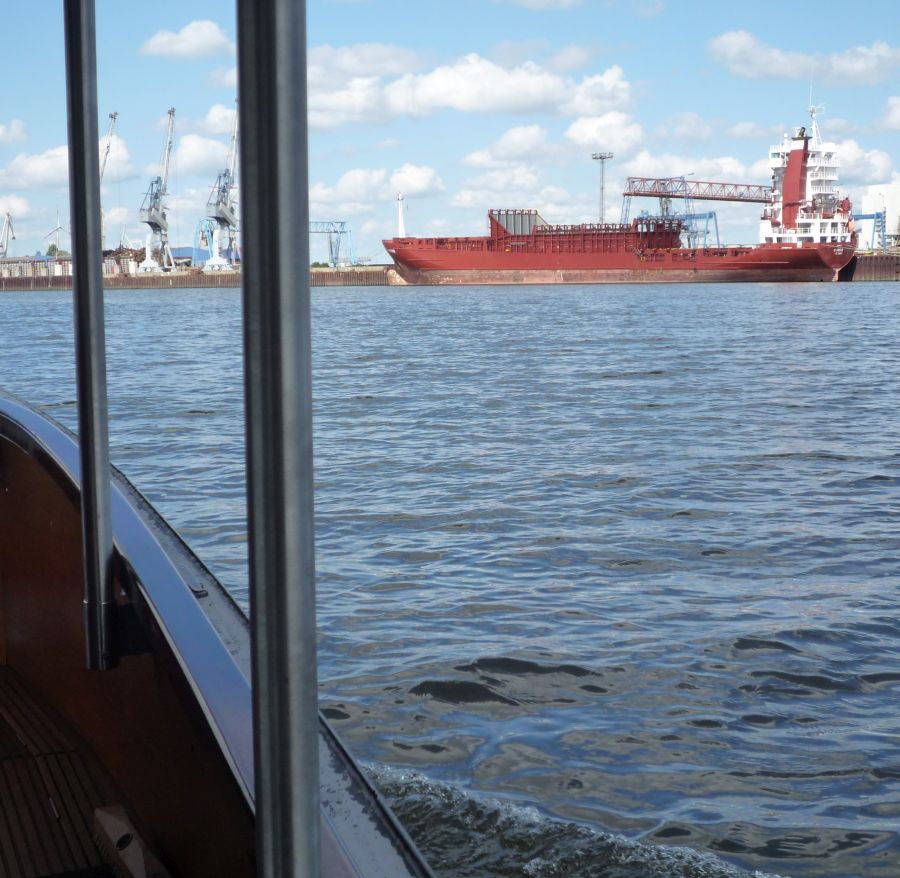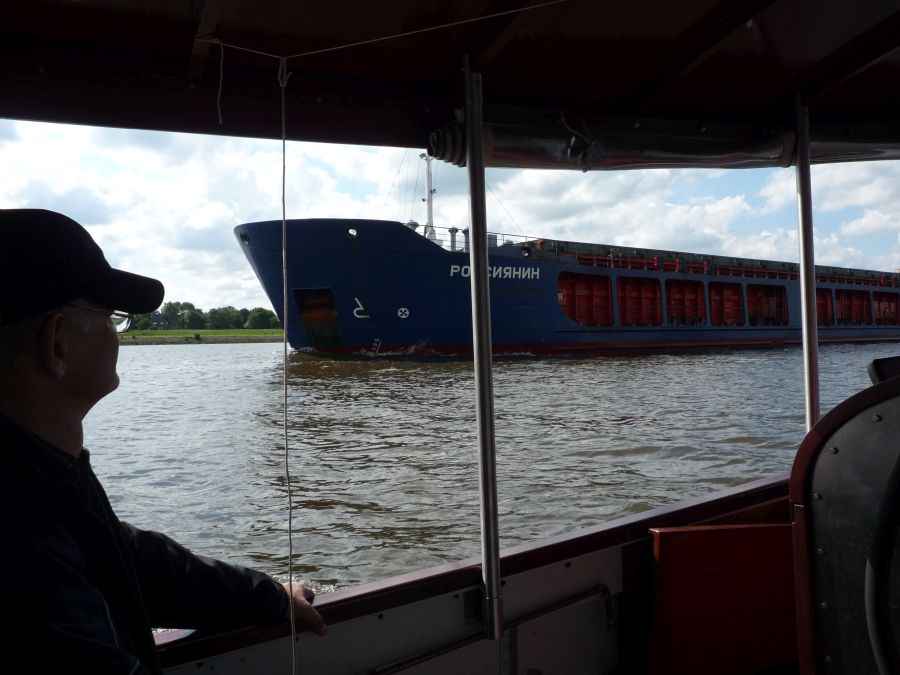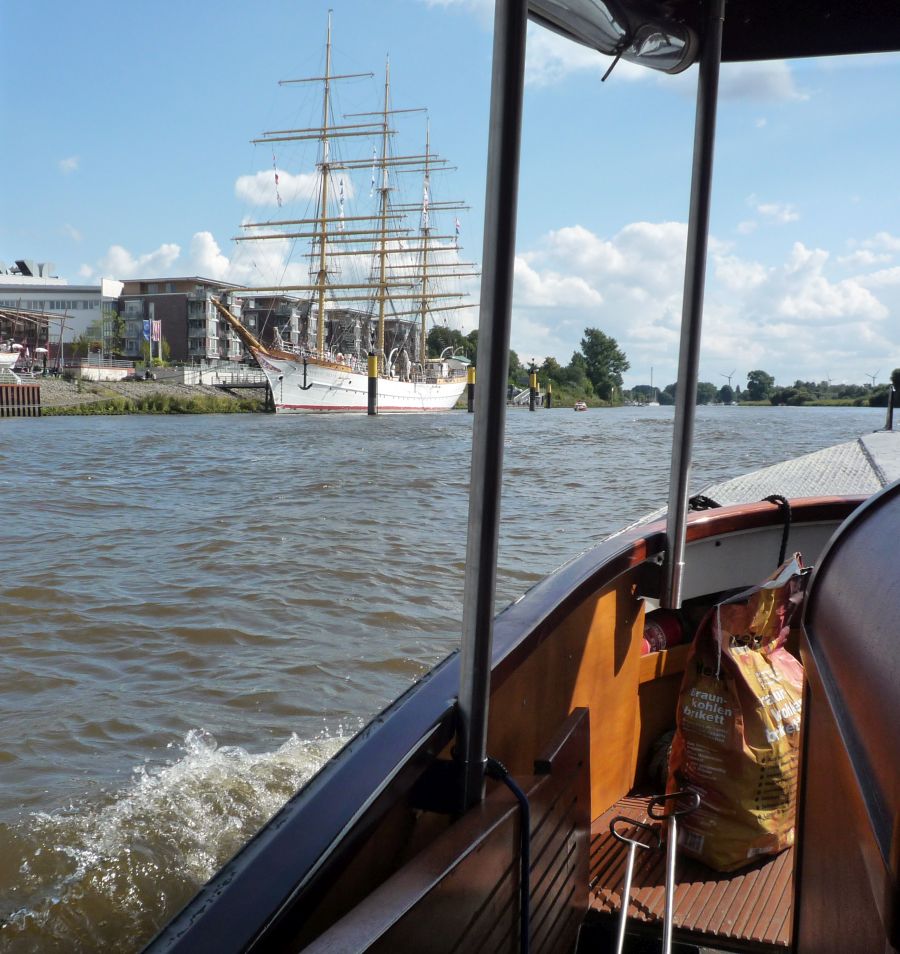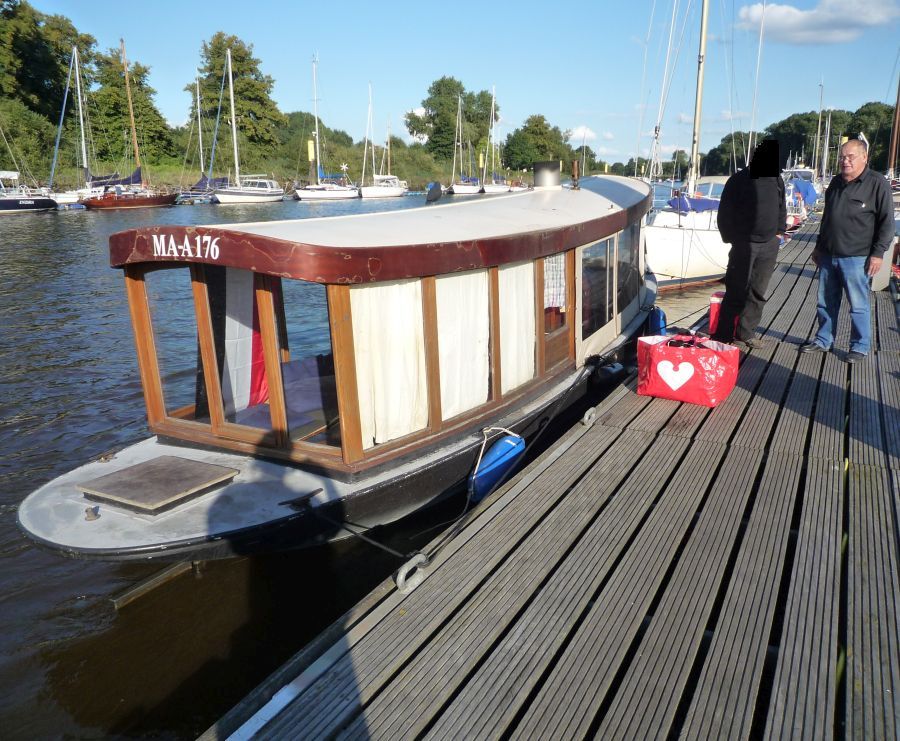Via the Weser to the Lesum
When I got into conversation with Hubert the last days, I remembered that I had always wanted to report here about my tour of northern Germany with Emma. Which means that the saying 'Live your present in such a way that you have a beautiful past in the future' is once again true.
After I had moved Emma from the steamboat paradise Berlin to my old new home Hanover by water, I felt compelled to take a longer journey on the water. Winter 09/10 Emma had spent lying in the water with ice up to 4 cm thick in the Mittelland Canal. She was supposed to recover from this next winter in Marc Wadephul's boatyard in Bremen-Lesum.
On 02.09.2010, 17:20, an acquaintance and I started at the Marinekameradschaft Hannover with 595 kg of lignite briquettes, 5 bags of Brazilian long-flame coal of 15 kg each and plenty of provisions on the Mittelland Canal in a westerly direction. The onset of design rain confirmed the need for a rainproof steamboat in northern Germany.
With a cozy fire and 5 bar boiler pressure, we reached the marina of Idensen, 31 km away, after about 3 hours of driving without any special incidents. I did the heating up the next morning before breakfast. At 6:30 a.m. 10 bar boiler pressure was available and at 6:45 a.m. we left Idensen in dense early morning fog.
In Minden, one usually descends from the Mittelland Canal via the 15-meter-deep Schachtschleuse (lock) to the Weser River. Due to a defect, we had to take a detour via the upper and lower harbor locks, which took a considerable amount of time. We first had to wait for a pleasure boat to arrive at the upper harbor lock.
In the upper lock we were still given a decent ride. In a truly spiteful move, the traffic light at the lower harbor lock immediately after the Europa turned red, and the upper lock gate closed right in our face. I wonder if someone didn't like steamboats or was simply asleep?
Fortunately, they finally were sympathetic to us, and we didn't have to wait for a second large ship. So we were able to enjoy an extra lock passage all to ourselves.
The Weser was Emma's first body of water with a significant current. The detour took us downstream through the underpass under the Mittelland Canal, which gave us our first glimpse of the 'rushing' waters at approximately 3 km/h between the closely spaced piers. Numerous commercial vessels overtook us until we reached the MYC Lade, and we learned to maneuver safely with throttled engine power in the not always very wide Weser between the wakes of the commercial vessels and the stone groynes. My first turn and docking directly in front of a weir was a perfect success. The members of the MYC Lade looked after us very kindly that evening.
On September 4th, it was all about making miles to meet our pilot, Peter Wadephul, in Bremen on time. We set off at 6:50 a.m. and moored in the waiting position at the Petershagen lock just 35 minutes later. The lock gate was already open, but the commercial vessel was supposed to enter first, which was much safer for little Emma!
The decent in the lock is almost complete. Since the stoker hasn't managed to keep the fire down, the safety valves are already hissing a bit — but that's why I installed them!
In the North German Plain, the Weser River becomes increasingly wider and its banks increasingly flatter. You drive through villages and green pastures, past grazing cows, sheep, and horses. Here, the world still seems to be in order.
Only in the lock canals do you occasionally travel on a dam or in landscape cuttings and between embankments like here, for reasons of way straightening.
The only thing between us and the North Sea was now the automatic Hemelingen pleasure craft lock. At around 10:20 a.m., we encountered a group of desperate motorboaters there. The lock was in a software error loop, and on Sunday, there was only telephone support from the control center, but no technicians on site. I then pressed all the emergency stop buttons and safety limit switches on the gates until Bill Gates was so confused that he restarted the 'gates' software.
We managed to board our pilot, Peter Wadephul, in Bremen just in time for the Weser's high tide at 12 noon. The five hours to Peter's house pier on the Lesum River flew by, as he was able to tell us countless stories about every little peculiarity along the edge of the Lower Weser, which from Bremen onwards is known as a maritime shipping route.
Mooring at Peter's house, we were welcomed, as always, with the warmest hospitality. Daily distance September 5th: 55 km. Being able to dock my self-built steamboat at the place where I first encountered the North German steamboaters in 1996 brought a significant circle of joy for me.
After all, it was Peter who had provided me with my bronze machine castings and a matching cast crankshaft, and who always had friendly, appropriate answers to all my questions - Peter Wadephul was practically my steamboat father and idol! Unfortunately, he passed away much too early on July 4, 2013.
